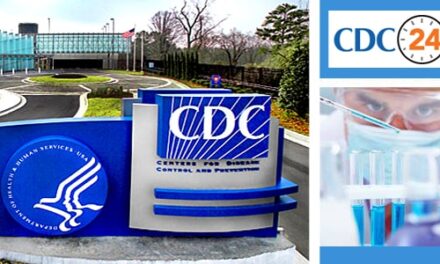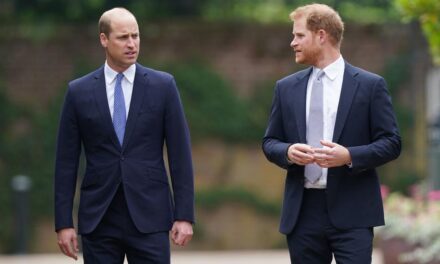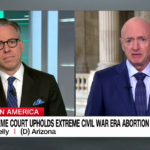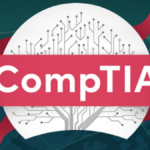
Opinion: Attorney General Merrick Garland, don’t prosecute Donald Trump

Jeffrey Toobin is chief legal analyst for CNN and the author of “The Nine” and “The Oath.” The opinions expressed in this commentary are his own. View more opinion at CNN.
(CNN)Did Donald Trump commit federal crimes in his final, desperate attempts to overturn the results of the 2020 election?
The latest revelations about Trump’s final days in office demonstrate that his behavior was, at a minimum, outrageous. He pressured his acting attorney general, Jeffrey Rosen, to open an investigation of purported fraud in the vote count in Georgia, even though there was no evidence of such wrongdoing. In one call, Trump apparently directed Rosen to “just say the election was corrupt, [and] leave the rest to me.”
Trump also allegedly engineered the departure of the United States attorney in Georgia when he refused to pursue Trump’s false claims. In addition, Trump’s statements at a rally in Washington, DC, on January 6 are said to have led his supporters to storm the Capitol later that day. For some distinguished lawyers, this evidence provides a roadmap for Merrick Garland, the attorney general, to direct a criminal investigation of the former president
To which I’d respond: not so fast. It’s one thing to describe the former president’s behavior as disgraceful and wrong — and I’d share that view — but quite another to argue that Trump should be criminally prosecuted. Based on the available evidence, there is no basis to prosecute Trump and little reason even to open a criminal investigation.

Federal criminal prosecutions can take place only pursuant to specific statutes, so it’s worth analyzing some of the laws that critics say Trump may have violated.
Insurrection Act.
This law prohibits anyone who “incites, sets on foot, assists, or engages in any rebellion or insurrection against the authority of the United States or the laws thereof, or gives aid or comfort thereto.” In the first place, this law has almost never been invoked. The leading precedent on the statute comes from a case from 1863!
In theory, Trump’s encouragement of the Capitol rioters on January 6 could be a basis for this charge against him. But there are two insurmountable problems. First, Trump’s words were ambiguous. He urged a march to Capitol Hill, but he also discouraged violence. Second, he could argue that he was seeking to uphold the rule of law by obtaining an accurate count of the election results, not seeking to rebel against the authority of the United States.
Election fraud.
This law bans “attempts to deprive or defraud residents of a State of a fair and impartially conducted election process, by . . . [the] tabulation of ballots known by the person to be materially false, fictitious, or fraudulent.” Under this theory, by instructing his attorney general to say there was fraud in Georgia, Trump committed this crime. According to Justice Department policy, though, this is what’s known as a specific intent crime — the prosecution must prove that the “offender was aware that he or she was doing something unlawful.” Again, the problem would be proving intent. Trump would assert that he was seeking to uphold the law, not violate it, and prosecutors would have a hard time proving otherwise.
Obstruction of justice.
This law makes it a crime to corruptly obstruct, influence or impede any official proceeding or attempt to do so. Once more, the issue would be intent — here reflected in the word “corruptly.” In his January 6 speech, Trump encouraged the crowd to march to Capitol Hill but he did not explicitly encourage violence. He had a First Amendment right to protest the count of the electoral vote, as did the protesters. It could be said that Trump encouraged the protesters to “impede” the electoral count, but he would argue that he was doing so to make the count more accurate, not more corrupt.

Hatch Act.
The Hatch Act prohibits federal employees from engaging in partisan political activity. The president himself is explicitly exempt from the strictures of the Hatch Act, but could be charged with the provision that makes it “unlawful for any person to intimidate, threaten, command, or coerce” a federal employee to “engage in … any political activity.”
Notwithstanding the Hatch Act, presidents and their staffs have engaged in partisan political activities since the birth of the Republic. And Trump could argue that he was not ordering Rosen to engage in political activity, but rather to enforce the law. Again, this criminal provision has rarely been invoked, and it seems unfair to raise it in connection with Trump’s dealings with his acting attorney general.
Conspiracy to defraud the United States.
This broad provision, much loved by prosecutors, makes it a crime to “conspire to commit any offense against the United States, or to defraud the United States.” The first part of this law runs into the same problem as the specific statutes noted above — that it’s difficult to prove an underlying crime. But what about a conspiracy “to defraud the United States,” which does not require proof of an underlying offense? According to Justice Department policy, the government will only bring such a charge if the defendant “made statements that he/she knew to be false, fraudulent or deceitful to a government agency, which disrupted the functions of the agency or of the government.”
Arguably, Trump’s statements to Rosen could fit this description, but again Trump could argue that he was not lying to Rosen, simply instructing him to state what Trump believed was true.
In addition to these technical legal barriers to any prosecution of the former resident, there’s a larger point as well. During his presidency, Trump violated many of the unwritten norms that governed the conduct of presidents. One of the most important such transgressions was his refusal to concede defeat when he lost his bid for reelection. But there are other governmental norms, too, and one of them is to avoid prosecution — and persecution — of former presidents.
One mark of modern despotism is the legal pursuit of former leaders by current office-holders, and the United States has wisely avoided this cycle throughout its history. To be sure, this practice has its limits, and pervasive and obvious criminality by a President should be prosecuted regardless of this tradition. But if there’s a close call, restraint is the better course.
Investigations of presidential wrongdoing, by Congress and others, are wise and even necessary. But actual prosecutions are not, and Donald Trump should be the beneficiary of this tradition, even if he himself would surely not offer such grace to others.
Source: http://rss.cnn.com/~r/rss/cnn_topstories/~3/1AmQYxEvJN0/index.html


















